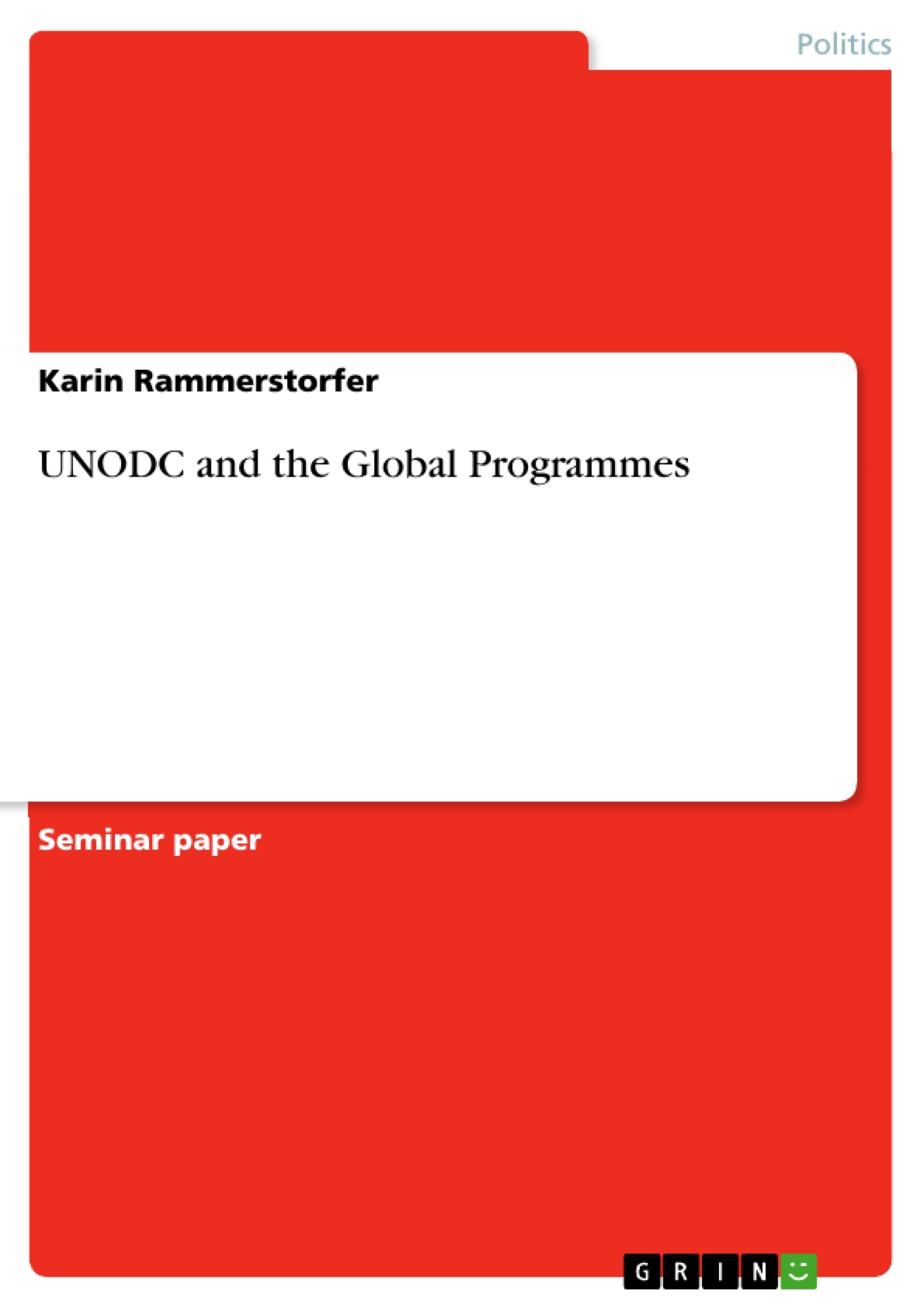Transnational Organized Crime is a relatively new problem that concerns the international community and its transnational relations. In this context, international organizations have a very important role in the fight against this global problem. The most important actors are still the governments themselves as they control what needs to be done to conquer the problem. An international organization as the United Nations can only be as strong as the Member States in its organization. Since organized crime is an international problem all countries and organizations need to work together to get control back. Governments alone will not be able to combat the problem along as organized crime is having an impact all over the world. Therefore awareness needs to be raised so that everyone knows what impact organized crime is having on governments and peoples lives.
Whole societies and countries can be destroyed since organized crime results in heavy “sideaffects” such as money-laundering, corruption, trafficking in human beings and terrorism. With the Global Programmes the United Nations Office on Drugs and Crime, which is the leading body in this fight, it tries to contain organized crime. I picked this topic as it is very interesting for me to see what possibilities a world organization like the United Nations is having to fight that problem and what efforts are undertaken to stop this vicious circle. Organized Crime is endangering the international security. In this context, I tried to point out the efforts of UNODC and its Global Programmes and looked what impact it actually has.
Inhaltsverzeichnis (Table of Contents)
- 1CONTEXT
- Introduction.
- Definition....
- United Nations Office on Drugs and Crime
- Organized Crime
- International Security .....
- Partners
- Efforts in the fight against Transnational Organized Crime.
- The Global Programmes...
- The Global Programme against Organized Crime
- The Global Programme against Trafficking in Human Beings.
- The Global Programme against Terrorism...
- The Global Programme against Money Laundering
- The Global Programme against Corruption .......
- Conclusion......
Zielsetzung und Themenschwerpunkte (Objectives and Key Themes)
This paper analyzes the efforts of the United Nations Office on Drugs and Crime (UNODC) in the fight against transnational organized crime, specifically focusing on the organization's Global Programmes. The paper examines the definition of organized crime and its impact on international security, highlighting the role of UNODC in addressing this global threat.
- The definition and scope of transnational organized crime
- The role of international organizations in combating organized crime
- The importance of international cooperation in addressing the global threat of organized crime
- The impact of organized crime on international security
- The UNODC's Global Programmes and their impact on combating organized crime
Zusammenfassung der Kapitel (Chapter Summaries)
- 1CONTEXT: This chapter provides an introduction to the topic of transnational organized crime, defining key terms such as "organized crime" and "international security." It introduces the UNODC as a leading international organization in the fight against transnational organized crime and outlines the organization's global programmes.
- 2Introduction: This chapter discusses the growing concern of transnational organized crime within the international community. It emphasizes the need for global cooperation and collaboration in combating this problem, particularly through the efforts of international organizations like the United Nations.
- 31. Definition: This chapter delves into the definition of UNODC and its three primary focus areas: research and analysis, assisting countries in treaty implementation, and educational outreach. It also provides a definition of organized crime based on the Convention against Transnational Organized Crime.
Schlüsselwörter (Keywords)
This paper focuses on the role of the United Nations Office on Drugs and Crime (UNODC), transnational organized crime, international security, global programmes, international cooperation, and the impact of organized crime on society. It analyzes the definition and scope of organized crime, the UNODC's efforts in combating this threat, and the importance of international collaboration in addressing this complex issue.
Frequently Asked Questions
What is the role of UNODC in fighting organized crime?
The UNODC is the leading body in the fight against transnational organized crime, focusing on research, assisting countries with treaty implementation, and educational outreach.
What are the "side effects" of transnational organized crime?
Organized crime leads to serious issues like money laundering, corruption, human trafficking, and terrorism, which can destroy whole societies.
What are the UNODC's Global Programmes?
The Global Programmes specifically target different areas of crime, including Organized Crime, Trafficking in Human Beings, Terrorism, Money Laundering, and Corruption.
Why is international cooperation necessary to stop organized crime?
Since organized crime is a global problem affecting international security, governments alone cannot combat it; they must work together through organizations like the UN.
How is organized crime defined in this context?
The definition is based on the Convention against Transnational Organized Crime, focusing on structured groups committing serious crimes for financial or material benefit.
- Citar trabajo
- Karin Rammerstorfer (Autor), 2006, UNODC and the Global Programmes, Múnich, GRIN Verlag, https://www.grin.com/document/61386



